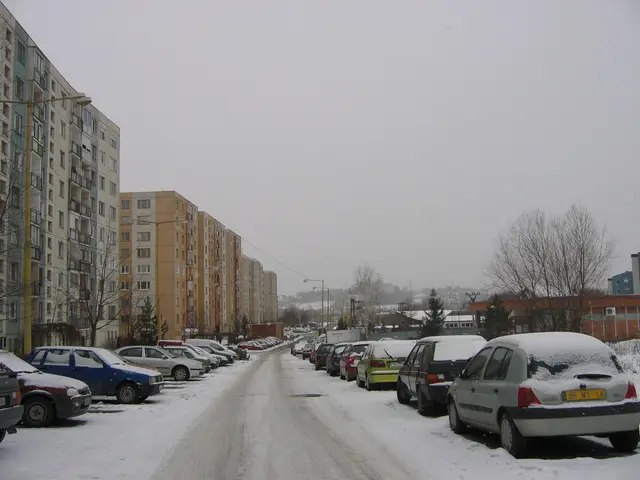Seoul Spins Amid Crisis: Martial Law, Impeachment, and a Futuristic Election
In the realm of politics, there exists a boundary beyond which conflict should not escalate.
The metropolis of Seoul's political landscape remains a whirlwind of events following the turbulent declaration of martial law by former President Yoon Suk Yeol. Here's a snapshot of these tumultuous developments:
Martial Law: Drama, Fallout, and Convergence
- Declaring and Reversing: In a climactic turn on December 3, 2024, Yoon declared martial law, only for the move to be swiftly overturned by the National Assembly within three hours. The hasty retreat from this infamous move fueled allegations of a bid to resurrect authoritarian rule[4].
- Impeachment convinced: This audacious move kick-started the impeachment process for Yoon. By January 14, 2025, he faced charges of "insurrection," initiating a domestic turmoil of epic proportions[4].
Out with the Old: Impeachment and Removal
- Impeachment Ruling: On April 4, 2025, South Korea's Constitutional Court, in a unanimous decision, ousted President Yoon Suk Yeol from office due to unconstitutional and unlawful acts[2][4].
- Rotating Leadership: South Korea’s recent leaders have primarily been from the "acts" of the interim presidency, with various senior officials stepping up until a permanent solution is in place[1][4].
The future awaits in June: A Snap Election!
- Vacancy Filler: A snap presidential election is set for June 3, 2025, to fill the vacancy, marking an important juncture in the nation's governance[1][3].
- Legal Battles: Contender Lee Jae-myung from the liberal opposition party faces legal challenges that could question his eligibility. A Supreme Court ruling has subsequently ordered the appeals court to issue a sentence concerning election law violations, which might impact his bid[1].
Domestic Struggles and Regional Tremors
- Polarization and Strife: South Korea's new president will encounter significant domestic challenges, such as political polarization, demographic concerns like an aging population, and economic stagnation[2][3].
- Geopolitical Shake-up: This crisis has wrapped the globe in uncertainty, giving East Asia's political landscape a distinct jolt[4].
- The international community closely monitors the political crisis in Seoul, as the metropolis grapples with martial law, impeachment, and an unexpected election.
- Yoon Suk Yeol's controversial decision to impose martial law and the subsequent impeachment process have raised concerns about the stability of South Korea's political system.
- The Seoul Ilbo, in a heated interview, said the nation is at a critical crossroads, with war-and-conflicts and general news headlines dominated by political turbulence.
- In the looming elections, the business and finance industry scrutinizes potential candidates' economic policies, seeking to ensure a stable economy.
- The education sector braces for changes, as a new president could implement reforms that reshape the country's academic and professional landscape.
- The domestic political crisis has far-reaching implications for regional alliances and partnerships, putting South Korea's role in the international community under scrutiny.
- Meanwhile, the heated debates over the impeachment and removal of former president Yoon Suk Yeol are still causing ripples within South Korea's government and political circuits.
- Regional politics and the global economy are watchful of the outcome of the snap election, as a new president could influence the industry's growth and foreign investments.
- In the face of these challenges, South Korea's new leader will need to find ways to appease both domestic discontent and the international community while stabilizing the nation's economy and addressing pressing social issues.









